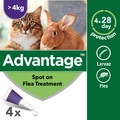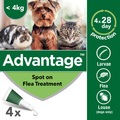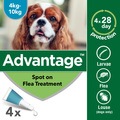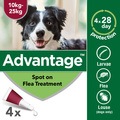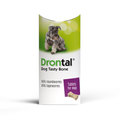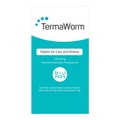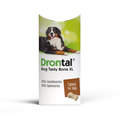The first grey hair has appeared, or maybe our furry friend is slowing down a bit. They’re getting older! Just like us, the needs of our pets change as they age. It’s important we recognise this so we can support them the best we can. We’ve summarised a guide on what to look for and how to best support your loved one.
What age is my pet considered senior?
The average cat reaches senior years at about 10 to 12 years of age, larger breed cats such as Mainecoons hit this earlier at around 7 years of age. Small/miniature dogs are considered senior at 10-12 years of age, medium/large breeds 7-9 years and giant breeds as young as 5-6 years of age.
Supporting their aging body
Aging related disorders are in general related to the specific organ or body part becoming tired. It’s worked constantly for your pet’s whole life! The nutritional need to support these body parts can increase with age. Supplementing or feeding the right thing can prolong that specific part of the body’s lifespan.
Joints
-
Is your pet slowing down? Weaker when getting up? Not jumping like they used to? All of these signs can actually be related to joint/arthritic pain.
-
A lifetime of physical activity has its toll, joint surfaces can wear down and become prone to arthritic changes in older age.
-
Joint supplements like our own brand Joint Force are great additions to consider, especially if you have noticed the above signs. You would be surprised how much of an improvement you may see after just a few weeks on a joint supplement.
-
Read our blog ‘Arthritis in pets - prevention and management’ for more information.
Brain
-
Does your pet sometimes seem confused? Vocalise at things they did not use to? Or has become unsettled at night? Signs of brain disorders can be subtle.
-
Altzheimers, Dementia and similar brain disorders are very hard to diagnose in our pets. We tend to bracket these under the title ‘Cognitive dysfunction’.
-
RenewMe and similar cognitive dysfunction supplements are great at not just supporting the brain to try and prevent these issues, but also at treating them.
-
Our blog ‘Understanding Cognitive Dysfunction’ summarises the topic nicely.
Teeth
-
Almost inevitably your pet’s teeth will start to decay with age.
-
Dental supplements can help slow this, our OraFresh range has some great products to try.
-
If you would like more information please read our blog ‘Why do vets care about our pet’s teeth?’
Kidneys
-
Aging related kidney disease is the most common cause of kidney failure in cats.
-
Over 75% of the kidney function must be damaged and lost before signs of kidney failure start to visibly show, such as drinking and urinating more. It is worth considering getting bloods done by your vet to pick up any early kidney disease. Your vets will likely have a ‘senior blood panel’ they can run for you.
-
There are no supplements/diets you can use to prevent kidney issues unfortunately, however there are many supplements and diets that can help an injured kidney.
-
We recommend checking out our blog ‘Managing your pet’s kidneys’ if your pet’s kidney needs supporting.
Liver
-
The liver processes the body’s toxins. Fortunately it has a great capacity to repair but it can scar over years of use. Aging related liver disorders are not uncommon.
-
Liver problems can be hard to detect so a blood screen performed by your vets is a great way to work out if the organ is coping well with aging.
-
Fortunately there are many ways to support the liver, such as with our Own Brand HepatiNorm.
-
We have a useful blog on ‘Supporting your pet’s liver’ if you wish to find out more.
Heart
-
The heart pumps constantly every day, of every month, of every year. It never rests! With age it can tire and weaken.
-
There are no specific ways to prevent heart disease unfortunately but there are some diets that can help treat the issue. These are all prescription diets so you should chat to your vet if you would like more information.
Sight, Sound and Smell
-
Your pet’s senses may start to dull as they get older. There are perfectly normal aging processes that can cause their ears, eyes and noses to become less effective.
-
It is worth going to see your vet if any of the above are affected as there can rarely be more serious underlying causes to these.
-
If the sensory loss is aging related then helping them accommodate by providing other sensory cues is a great idea. For example, if your pet is going deaf then consider using more visual commands than you normally would.
This list is massive! Is there an easy way to cover them all?
Senior diets are a great way to help prevent and manage a bit of all the above problems. It is generally better to use a specific supplement if you know your dog is affected by one of the above conditions, but senior diets often contain a good basic mix of nutrients that help the aging body. Check out our Senior Dog and Senior Cat diet range for some great food choices.
Written by: Hannah

